- Home
- Tim LaHaye
Brink of Chaos Page 7
Brink of Chaos Read online
Page 7
“I’ll stop in again, next time I’m in the neighborhood.”
“Please do.”
After he left, Deborah felt the urge to call her mom. Later, she thought. I’ll call from my apartment.
She looked around her cubicle and thought about Tom Birdow’s unasked question, which she herself had asked repeatedly. Why hadn’t she been transferred to Fort Mead with the rest of the DISA staff? Instead, she was tucked away in this obscure corner of the Pentagon. Deborah, of course, had her suspicions. And it had to do with the controversial nature of the “Jordan” legacy.
I’m being isolated because of my last name.
Colorado, Hawk’s Nest Ranch
Abigail was on the video phone with Joshua, who was back in Israel. He had just finished briefing her on all of the details of the mission to rescue Captain Louder — the ones the White House would never admit and the American people would never learn — unless, of course, it was laid out in AmeriNews, the only remaining news source not controlled in some way by the current administration.
Abigail needed to know, so she asked once again, “So, you’re really safe now? Really?”
“Yes.”
She sighed. A shiver went down her back as she visualized the dangers and thought about what might have been. Then she collected herself. “Josh … oh, Josh, you know I’m so terribly proud of you …”
“That means the world to —”
But Abigail didn’t let Joshua finish. “Please, listen. I’m also devastated by the risks you just took — once again —”
“Honey, let me explain —”
“And honestly, I’m a little angry —”
“I need to tell you something —”
“No,” Abigail said. “Strike the record. Let me rephrase the question to the witness. Would it surprise you, Colonel Jordan, that I am not just a little angry. I am very angry —”
“I couldn’t tell you about the mission.”
“Top secret?”
“Absolutely.”
“Clandestine?”
“You’ve got it, Abby.”
“There’s one thing you forget. I’ve been through all this before. Standing by you when you accepted every assignment during your Air Force days, the test-pilot days, the secret recon missions over deadly territories. When you took on every mission, I supported you and waited, praying and hoping you’d come back alive but always wondering if I’d hear the doorbell and see your commanding officer standing at the door with that painful look in his eyes. But you’re out of the service now. You’re a private citizen! If you’d at least told me something I could have prayed for you. But you shut me out!”
“Yes, I’m civilian now, but that doesn’t change everything. It doesn’t change my obligation to do the right thing.”
“Let me suggest something, my darling husband.”
Joshua was quiet. She could see on the screen that he was listening. Really listening. She continued, “Your obligations start with God — I’m with you on that. Your moral obligations to your country, your friends, your own conscience, you know how much I believe in that …”
“I know you do.”
“But somehow —” She could feel her chin starting to tremble and her voice quivering. She had to keep it together. “The next time you’re up there in the wild blue yonder of what’s right, noble, and courageous, remember your wife back here, down on the ground.” Now her voice was breaking up. “And one of these days, let me know where I fit in as I sit here at Hawk’s Nest waiting for you, not knowing when I’ll ever feel your arms around me, looking you in the eyes, really seeing you when we talk. Not just having to settle for a video call. Don’t you realize how difficult this has been? Josh, you’re the love of my life, and I have no idea when we’ll ever be back together again …”
It all came pouring out — all the powerful feelings she had been holding in her heart for the last two years, during their forced separation. She had been trying to be brave about it all, managing Joshua’s defense while the two of them were separated by an ocean, being the glue that kept the family together, and trying to be both parents to Deborah and Cal who were fully adults, of course, but still needed support and guidance. She felt guilty putting any of this on Joshua, but something had just snapped, and she had to let it out.
She could see Joshua nodding on the Allfone screen. There was that strong, square-jawed face she loved, which over the months seemed to look a little older, but his eyes, always keen and brilliant, now seemed to be watering.
“Abby, dear,” he said, “oh, Abby, I’m sorry. I should have given you a hint — some kind of idea what was going on. I didn’t mean to shut you out, baby …”
Abigail fought to keep it together. She didn’t want to make this harder on Joshua. “I miss you, darling.”
After a moment of silence Joshua smiled and changed the subject. “You’re at Hawk’s Nest? I thought you were in New York.”
“I was.”
“Why’d you fly to Colorado?”
“So I could sit here in our big mountain lodge and feel sorry for myself.” Abigail laughed at herself, and Joshua joined in.
Abigail looked at her husband’s wide, handsome grin on the screen, as he gazed back at her. “You’re still gorgeous, darling …”
She waved off the suggestion. “You can’t trust these Allfone video images,” she said, wiping a tear from her eye.
He laughed louder and tilted his head. “Wait a minute. I know why you’re at Hawk’s Nest. A Roundtable meeting’s scheduled. I’m sure you’ve got more on the agenda than you can handle — as usual.”
She cocked an eyebrow. There was a twinkle in her eye. “I wondered how long it would take you to remember. Yes, the regular meeting. But I’m feeling like we’re the Continental Congress meeting to fend off the Redcoats — except the enemy is our own government, a corrupt president who’s acting like a queen, and who’s trading our national sovereignty for a false promise of international peace and tranquility. And then there’s my husband! Josh, you’re John Adams and Thomas Jefferson all rolled into one. And, darling, you’re absence is sorely missed.”
“You’re sweet, but way overexaggerating,” Joshua shot back. “So, who’s showing up?”
“John Gallagher’s here. I think he comes for the home cooking!”
Joshua chuckled. The iconoclastic former FBI anti-terror agent, who had put on a lot of weight since leaving the Bureau, kept assuring everyone he was “thirty days from being in peak physical condition.” That was something all of them were waiting to see.
Abigail ticked off the list of other members: “Our self-made billionaire-entrepreneur, Beverly Rose Cortez,” she said. “I just love that gal. Tender but tough. She’s coming in tomorrow morning. Along with Phil Rankowitz. The rest by videofone.”
“About Phil,” Joshua said, “I hope our resident media guru will address the issue of using Amerinews to run the article about the U.N.’s new secretary-general, Alexander Coliquin.”
“Already have it on the agenda. Didn’t you get the email?”
“Sorry — I must have missed it.” Then he added with a smirk, “I was busy sightseeing in North Korea …”
Abigail tossed him a friendly barb. “See what you miss when you pull one of your super-hero-saves-the-day stunts?”
“Sure, but it goes to show you — ever since I’ve been a man without a country — you’ve been running the Roundtable just fine without me.” Then Joshua dropped the grin. “Hey, I’ve been thinking.”
“Uh oh, that’s dangerous …” Abigail gave a sly smile.
“How about I come home now? Face the legal music. Fly —”
“Right into the flak? Right. Heard all that before. Josh, I thought we had an agreement.”
“We did. But I’m dying here without you.”
“You know I feel the same. But we’ve filed our appeal. Maybe the court will decide that it’s crazy to use that trial order to keep me from leaving the United States while
your case is pending.”
“You’re the lawyer, Abby, but to me that seems like a one-in-a-million shot. Besides, it’ll take another year for a ruling. I can’t wait that long.”
She thought for a moment. “I’ve got one more trick up my sleeve,” she said. “I’ve got a lead into the federal prosecutor’s office. I’ve been talking to some former law partners, and I heard that one of the assistant attorney generals in the AG’s office, a guy who was on the team prosecuting you, just quit under strange circumstances. Very sudden. This lawyer — Harley Collingwood — had a reputation for being pretty tough on defendants, but also very ethical and eminently fair. So, you have to ask yourself, why did he up and leave the attorney general’s office?”
“More money in the private sector?”
“Could be. But some rumors indicate otherwise. So, honey, I’m asking you to wait a little longer. I want to see if this Harley Collingwood thing might have something to do with your case. Who knows? What if he quit the DOJ because he discovered their case against you has an ugly, illegal underbelly? Until I get your defense set up, they’ve got a case against you based on seemingly invincible testimony. You and I both know the prosecution’s case is built on a lie, but I have to find the proof of that lie first, to show that their chief witness is perjuring himself. I just need a little more time.”
“Time? That’s exactly what we don’t have, Abby. I need to be with you if … or more likely, when …” There was silence on both ends of the line now. Abigail knew what he meant. He didn’t have to lay it out for her. They were both keen observers of recent events, and they knew what the Bible said about the signs of His coming. It was too clear now for either of them to deny. They were convinced that the beginning of the end was rushing in like a bullet train. If there ever was a time for them to meet it together, in person, it was now.
“Just a little more time, Josh.”
“Okay, just a little.” Then he added, “I can’t tell you how much I love you and miss you, Abby. And how I need to be near you.”
Abigail couldn’t dispute any of that. So she said the only thing she could: how passionately she ached for him and needed to be with him too. Before hanging up, Joshua returned to a final bit of business. He said that he would call in to the Roundtable meeting the next day via Allfone video. The discussion was too important for him to miss. Before ending the encrypted conversation, they prayed together. Then his final words to Abigail were, “Please find the loose thread in the government’s case, will you, dear?”
Abigail sat down on the cowhide couch and began to weep quietly — until she had no more tears. She knew the kind of man Joshua was when she married him and was glad for it. He would risk his life to rescue a fellow pilot. And she wondered: had she been the wife of Captain Louder, wouldn’t she want Josh to do everything and anything to save her husband? But it wasn’t just about that. It was about this separation with no end in sight that was beginning to take a toll on her. She picked herself up from the couch and wandered into the kitchen to make herself some tea.
With her cup and saucer in her hand, Abigail moved into the study and sat down at the desk. Just above her on the wall were photos of Josh with members of the joint chiefs of staff and other photos of him shaking hands with presidents. Next to the photos were framed articles on some high-profile legal cases that she had won during her law career.
Abigail flipped open the file on her husband’s case and once more dug into the thick paperwork. From all appearances, the prosecution’s inflated case was huge and impressive and unreachable — like the Goodyear Blimp. What she needed was a needle to deflate it. Unfortunately, it was buried in a haystack somewhere — and she wasn’t even sure which haystack.
But she did have an idea. As she flipped through the papers, she looked for something in particular — the news articles she had collected about the intriguing former federal prosecutor, Harley Collingwood, who had been assigned to prosecute Joshua’s case. She was now trying to figure out why he abruptly left the Department of Justice and whether it had something to do with the high-level corruption that she knew lay at the bottom of the case against her husband.
TEN
Jerusalem, Israel
“Caught up.”
“Say again?”
Pastor Peter Campbell seemed oblivious to the television cameras in the Middle East studios of the Global News Network. He leaned forward in his chair, looked his GNN interviewer in the eye, and repeated the phrase. “Caught up. That’s the translation of the Greek term used in the original New Testament writings. The word rapture is also commonly used among Christians for this event. That word was taken from the later Latin translations. What we are talking about here is the supernatural event that happens right before the beginning of the most catastrophic period in human history.”
Bart Kingston, the career newsman conducting the interview, struggled to produce a half-baked smile. He had read up on this New York City preacher who headed up the Eternity Church in Manhattan. Kingston knew all about Campbell making news with his band of “Bible prophecy” experts and their doomsday predictions. He always did his homework, even though this was not his kind of story. He considered himself a hard news guy. But Kingston happened to be in Jerusalem covering some political twists in the administration of Prime Minister Sol Bensky, so he was available; the religion reporter who should have handled the interview was already on assignment at a new United Nations center in Iraq, covering something called “One Planet — One Cause — One God” — the One Movement for short, a religious conclave fighting global warming through a collaboration of various religions around the world. Kingston, not a particularly religious man himself, thought the idea of a world unification of religions probably had some merit. Or at least the global conference promoting it could be a decent news story.
“You mentioned the Latin,” Kingston said, “could you expand on that a little?”
“I’m talking about one of the epistles — New Testament letters — written by the apostle Paul to the early churches in the first century. In that particular letter he was talking about the fact that Jesus Christ will be coming again, back to earth —”
“The so-called second coming of Christ?”
“Exactly, but not the way most folks think.”
“How so?”
“The New Testament lays out the order of events. The Lord Jesus will first be coming for his church, whisking Christians off the planet … literally. Followed by a seven-year period, with the last half devolving into a time of incredible suffering on the earth. Then Christ appears on earth to establish His Kingdom. That first part, though — the rapture — is just for Christ’s ‘church universal’; in other words, those who belong to Him, regardless of denomination, church attendance, or any other external factor —”
“Sounds exclusionary. Not very inclusive.”
“Maybe it strikes you that way, but the standard has to be not what you or I think about it, but what God has said in His Word. And the Bible is clear that the true believers in Christ will be ‘caught up,’ literally snatched up to Christ. They are the ones who have trusted in Christ and in the sacrifice He made on the Cross right here in Jerusalem, a sacrifice for sins. That sacrifice, by the way, wasn’t just for my sins; it was for yours as well.”
Kingston tried not to react. He changed the subject. “Of course, right now, this week, religious leaders from around the world are attending a convention in Iraq to unify behind a plan to save the planet from a global-warming disaster — brilliant men and women, committed to their various religions. Yet many of them have denounced what you and your group are saying, calling it crackpot theology. And using words like dangerously divisive and nonsensical. How do you respond?”
Campbell took only a split second to reflect on Kingston’s curve-ball. “During Jesus’ earthly ministry He met with a member of the ruling religious group, a fellow named Nicodemus. Jesus explained to him that to know God and inherit eternal life, he would need
to receive Christ and be born again. That came as a shock to this man, who was probably a brilliant teacher educated in the Old Testament Scriptures, the Tanakh, and who was undoubtedly a wealthy, influential man — a mover and shaker of his day. The point is this — I consider the opinions of the religious leaders of our day to be a moot issue — unless they’re ready to follow the one path that God has laid out through His Son Jesus Christ and described in His Word, the Bible.”
There was an edge to Kingston’s voice as he dug in. “So then, all these other religions, all except Christianity, you condemn them?”
“I condemn no one. Judging the hearts of others is way above my pay grade.”
Kingston offered a half smile as Campbell continued. “I’m just a sinner saved by grace. All I’m saying is that God calls us to an inner spiritual transformation, to be born again, the Bible says. That transformation must come from a personal faith in Christ, not from some outward show of religion. If we do that, then one day — very soon, I believe — we will be caught up with Him, in the blink of an eye. Those who don’t, well, they will unfortunately face that short but horrifying phase called ‘the tribulation’ — unparalleled terror on the earth.”
Kingston was more than a little dubious but remained objective; after all, he had a job to do. “How do you respond to your critics who say you’re going way too far with this? You talk about the return of Christ as if it’s practically on the doorstep of history, as if Christ was galloping down the lane right now, ready to start knocking on the door of Planet Earth. Your critics have called you Pastor Apocalypse … They suggest your brand of extremism whips people into fanatical, even violent, reactions. I’ve heard the Sol Bensky administration here in Jerusalem is concerned about what people might do as a result of your Armageddon religion —”
“The folks who have actually experienced the spiritual transformation that comes with knowing Christ won’t be the ones doing the crazy things. They’ll be the ones with the inner peace to know that their Redeemer is getting close. And they know that even the terrors of the end times will be used by the God-of-all-compassion to call the human race to Himself, giving them one last chance to receive Christ as Savior. Wouldn’t you want God to give you one more chance, Bart?”

 Glorious Appearing: The End of Days
Glorious Appearing: The End of Days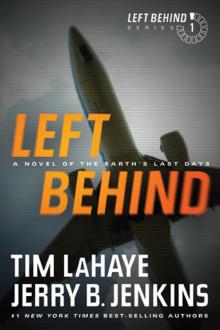 Left Behind: A Novel of the Earth's Last Days
Left Behind: A Novel of the Earth's Last Days Kingdom Come: The Final Victory
Kingdom Come: The Final Victory Nicolae: The Rise of Antichrist
Nicolae: The Rise of Antichrist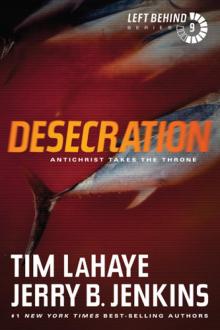 Desecration: Antichrist Takes the Throne
Desecration: Antichrist Takes the Throne Mark's Story: The Gospel According to Peter
Mark's Story: The Gospel According to Peter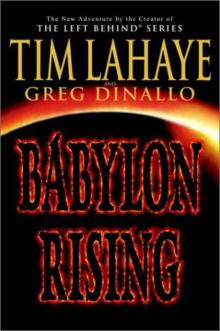 Babylon Rising
Babylon Rising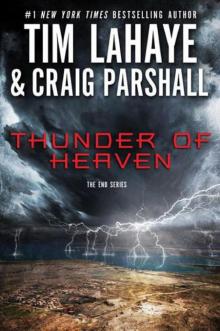 Thunder of Heaven: A Joshua Jordan Novel
Thunder of Heaven: A Joshua Jordan Novel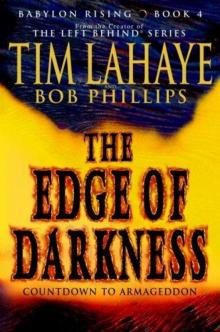 The Edge of Darkness
The Edge of Darkness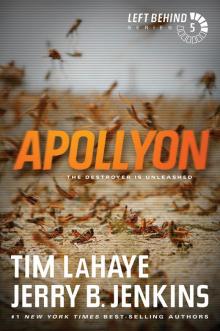 Apollyon: The Destroyer Is Unleashed
Apollyon: The Destroyer Is Unleashed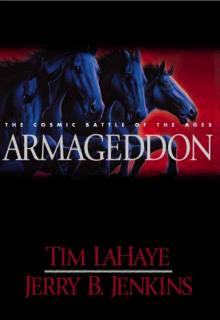 Armageddon: The Cosmic Battle of the Ages
Armageddon: The Cosmic Battle of the Ages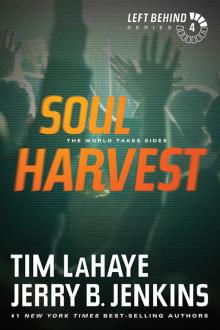 Soul Harvest: The World Takes Sides
Soul Harvest: The World Takes Sides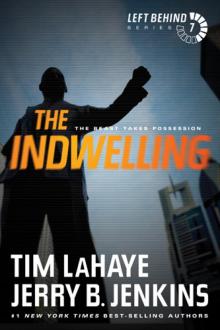 The Indwelling: The Beast Takes Possession
The Indwelling: The Beast Takes Possession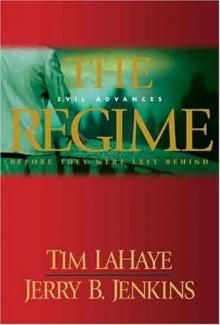 The Regime: Evil Advances
The Regime: Evil Advances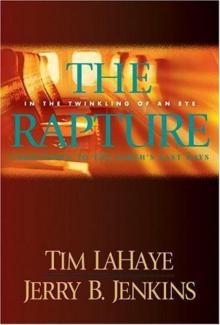 The Rapture: In the Twinkling of an Eye / Countdown to the Earth's Last Days
The Rapture: In the Twinkling of an Eye / Countdown to the Earth's Last Days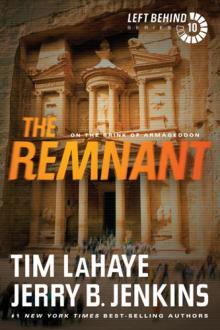 The Remnant: On the Brink of Armageddon
The Remnant: On the Brink of Armageddon John's Story: The Last Eyewitness
John's Story: The Last Eyewitness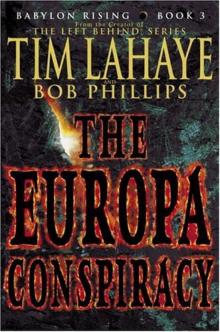 The Europa Conspiracy
The Europa Conspiracy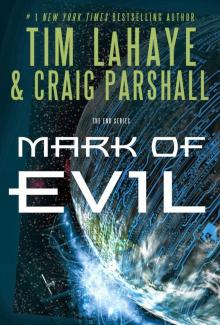 Mark of Evil
Mark of Evil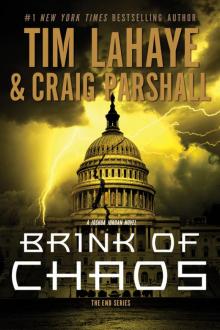 Brink of Chaos
Brink of Chaos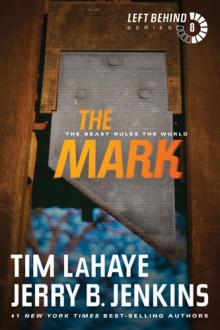 The Mark: The Beast Rules the World
The Mark: The Beast Rules the World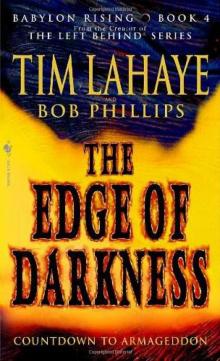 04 The Edge of Darkness
04 The Edge of Darkness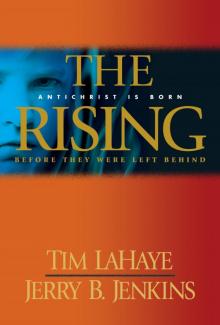 The Rising: Antichrist is Born / Before They Were Left Behind
The Rising: Antichrist is Born / Before They Were Left Behind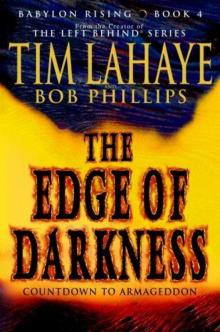 Babylon Rising: The Edge of Darkness
Babylon Rising: The Edge of Darkness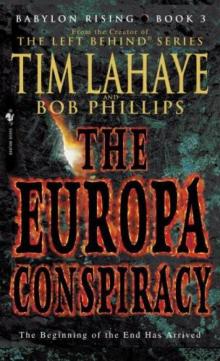 03 The Europa Conspiracy
03 The Europa Conspiracy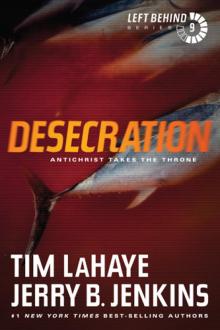 Desecration
Desecration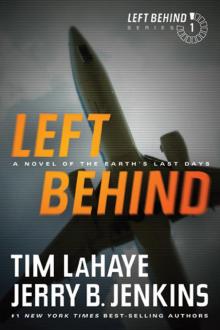 Left Behind
Left Behind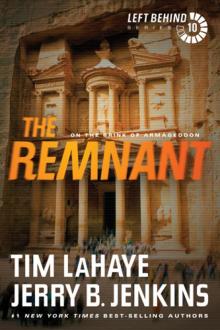 The Remnant
The Remnant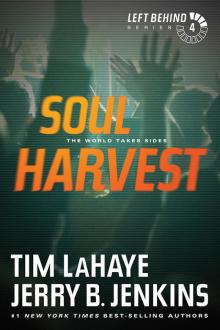 Soul Harvest
Soul Harvest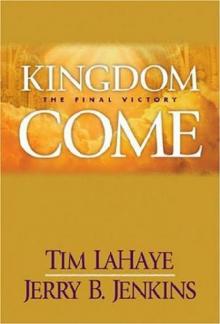 Left Behind Book 13: Kingdom Come The Final Victory
Left Behind Book 13: Kingdom Come The Final Victory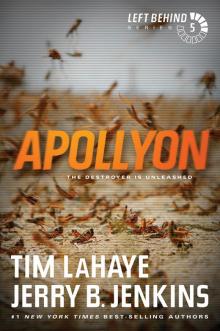 Apollyon
Apollyon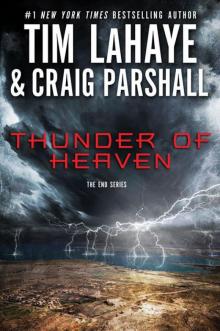 02 Thunder of Heaven: A Joshua Jordan Novel
02 Thunder of Heaven: A Joshua Jordan Novel Glorious Appearing
Glorious Appearing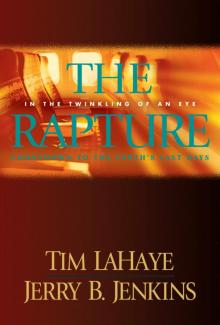 The Rapture: Evil Advances / Before They Were Left Behind
The Rapture: Evil Advances / Before They Were Left Behind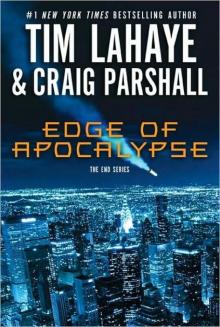 Edge of Apocalypse
Edge of Apocalypse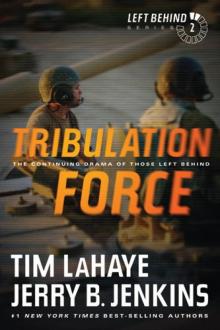 Tribulation Force
Tribulation Force The Left Behind Collection: All 12 Books
The Left Behind Collection: All 12 Books Black Friday
Black Friday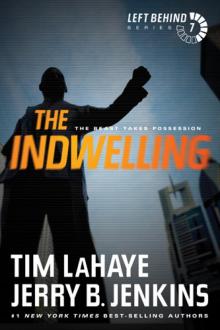 The Indwelling
The Indwelling The Left Behind Collection
The Left Behind Collection